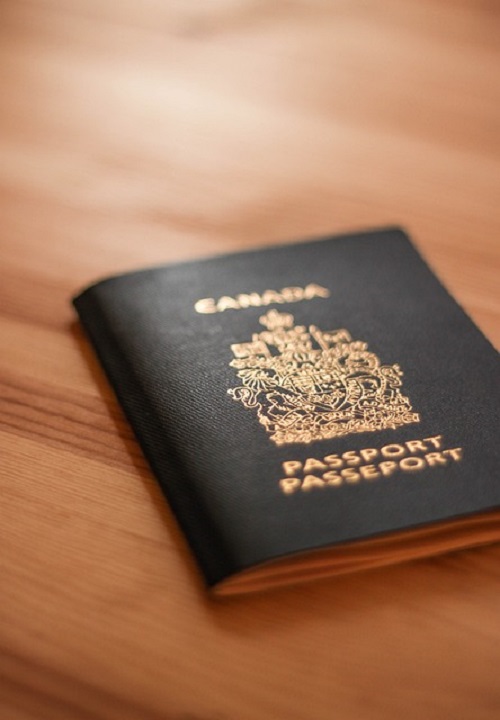Withholding legal documents can have severe legal and ethical consequences, depending on the context and the specific documents involved. There are several common scenarios where parents may withhold legal documents, and each has its potential consequences. It’s essential to understand these implications to avoid any legal or ethical issues. Some of these legal documents may include
. Child Custody and Visitation Agreements
In cases of divorce or separation, parents may withhold court-ordered child custody and visitation agreements. This is a violation of a court order, and the offending parent could face legal consequences, including fines, loss of custody or visitation rights, or even jail time, depending on the severity of the violation.
- Birth Certificates and Identification Documents
Parents may withhold the birth certificates or identification documents of their children. This can cause various problems, such as difficulty enrolling in school, obtaining a passport, or accessing healthcare. Sometimes, it might be considered a form of parental alienation, which can be addressed in family court.
- Financial Documents
In cases of child support or spousal support orders, parents may withhold financial documents or income information to avoid paying the required support. This can lead to legal actions and penalties for non-compliance with court orders.
- Estate and Inheritance Documents
After the death of a parent, disputes can arise if other family members believe that important estate and inheritance documents are being withheld. This can lead to legal battles and potential challenges to the will or estate distribution.
- Educational Records
Parents may sometimes withhold the educational records of their children, making it difficult for the other parent to be involved in the child’s education or make informed decisions. Educational records are typically protected by federal laws like the Family Educational Rights and Privacy Act (FERPA), which grant certain rights to parents.
- Medical Records
In some cases, one parent might withhold a child’s medical records from the other parent, which can affect the child’s healthcare and treatment decisions. Medical records are typically considered confidential, but access can often be granted in legal situations or when both parents have legal custody.

Why Would a Parent Withhold Legal Documents?
When a parent withholds legal documents from their child or children, there are usually underlying reasons for such a decision. It is not a sudden or arbitrary action. Some of the reasons for this might include a lack of trust between the parent and child, concerns about the child’s safety or well-being, or a desire to exert control over the child’s life. It is important to explore these underlying reasons to work towards a resolution that is in the best interests of everyone involved.
Control
It is a disturbing reality that some parent withhold legal documents, such as identification papers or passports, as a means of maintaining control over their child’s affairs. This troubling behavior can be a tactic used to exert authority and influence over their child’s decisions. Parents who engage in this type of manipulation can cause significant harm to their children’s autonomy and can negatively impact their ability to make independent decisions. Individuals need to be aware of this issue and understand the potential consequences.
Dependency
Many parents tend to hold onto their child’s legal documents such as their birth certificate, social security card, and passport out of fear that their child may become independent and no longer rely on them for support or guidance. This fear stems from the belief that withholding these documents will prevent their child from being able to access important services and opportunities such as applying for a job, opening a bank account, or traveling abroad without parental assistance. However, it is important to note that withholding these documents can have serious consequences for both the child and the parent, as it can hinder the child’s ability to become self-sufficient and can even result in legal issues for the parent. Ultimately, it is important for parents to trust and support their child’s journey towards independence, and to provide them with the necessary tools and resources to succeed.
Financial reasons
There are instances where parents may choose to hold back important legal documents, like birth certificates or social security cards, from their children. This is often done to restrict their children’s access to financial resources or benefits that they may be eligible for. It is important to note that this practice is not legal and can cause significant harm to the child’s future financial and personal well-being.
Legal issues
In situations where parents are facing legal issues like custody disputes or outstanding debts, they may choose to withhold legal documents to avoid any potential complications or negative consequences related to these issues. It’s important to keep in mind that this is not a recommended course of action and may lead to further legal complications. Seeking legal counsel and resolving these issues in a timely and responsible manner is highly advised.
Cultural or religious beliefs
It is important to note that in some cultures or religious communities, parents may choose to withhold legal documents as a way of upholding traditional roles or adhering to specific beliefs about family structures and responsibilities. This practice can have significant implications for individuals seeking to assert their legal rights and may require navigating complex legal and cultural contexts.
Abuse or neglect
In some cases, parents may engage in a pattern of abuse or neglect, where they withhold legal documents from their children as a way of controlling or manipulating them. This behavior can have severe consequences for the child and may impact their ability to navigate important situations such as obtaining employment, accessing healthcare, or pursuing educational opportunities. It’s important to recognize and address this type of abuse to ensure the safety and well-being of the child.

Summary
If you find yourself in a situation where someone, including a parent, is withholding legal documents that you have a legitimate right to access, it’s essential to consult with an attorney who specializes in family law or the specific area of concern. They can help you understand your legal rights, take appropriate legal action if necessary, and work towards resolving the issue through the appropriate legal channels. Family court or mediation may be options to consider, depending on the circumstances.
It is crucial to understand that not providing legal documents to a child can lead to severe consequences and might be classified as a type of neglect or abuse. Children have the right to access their legal documents, and not providing them can deprive them of essential services, benefits, or opportunities. If you suspect that a child’s legal documents are being withheld inappropriately, it is critical to notify the relevant authorities for investigation and intervention.

